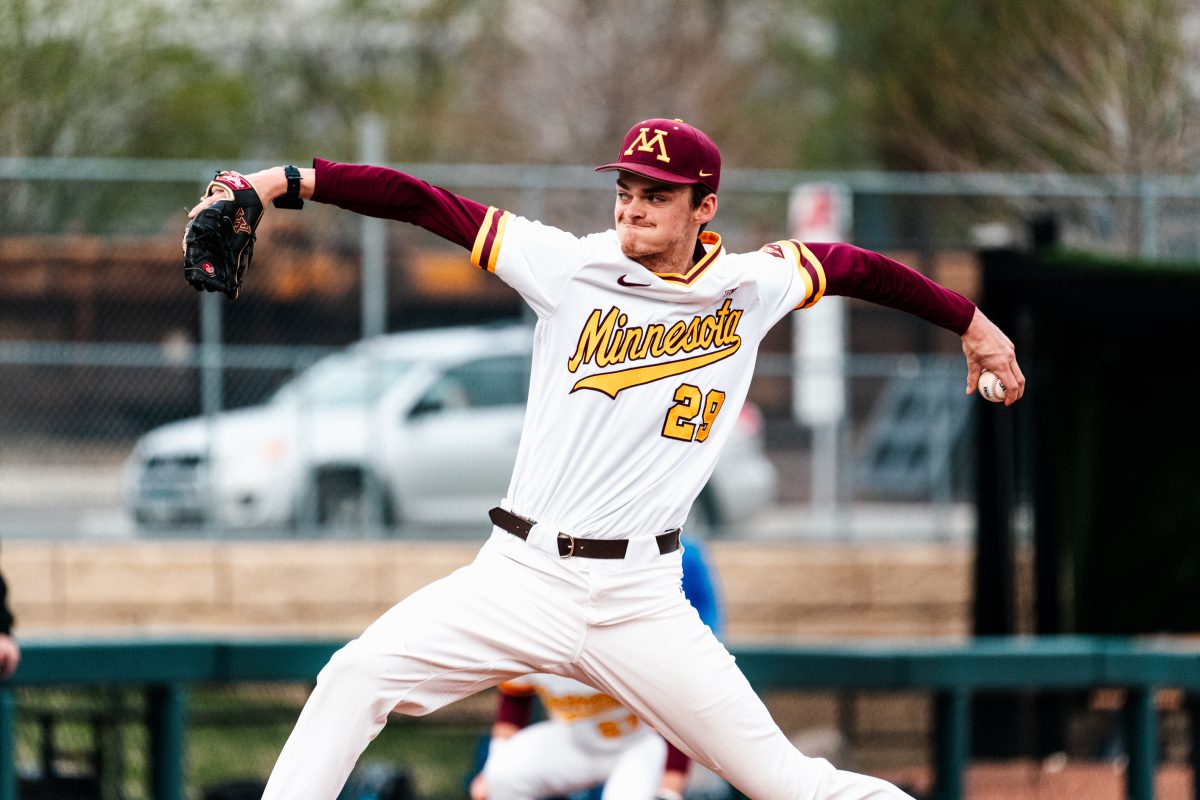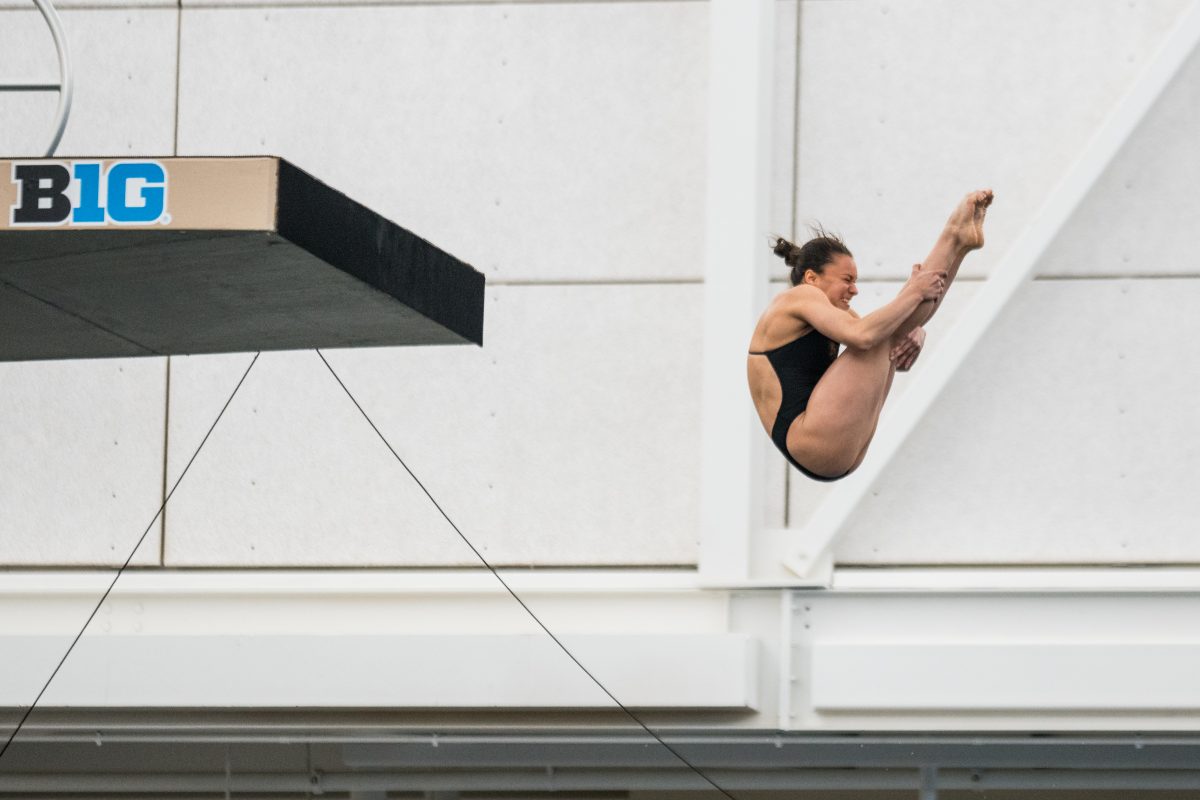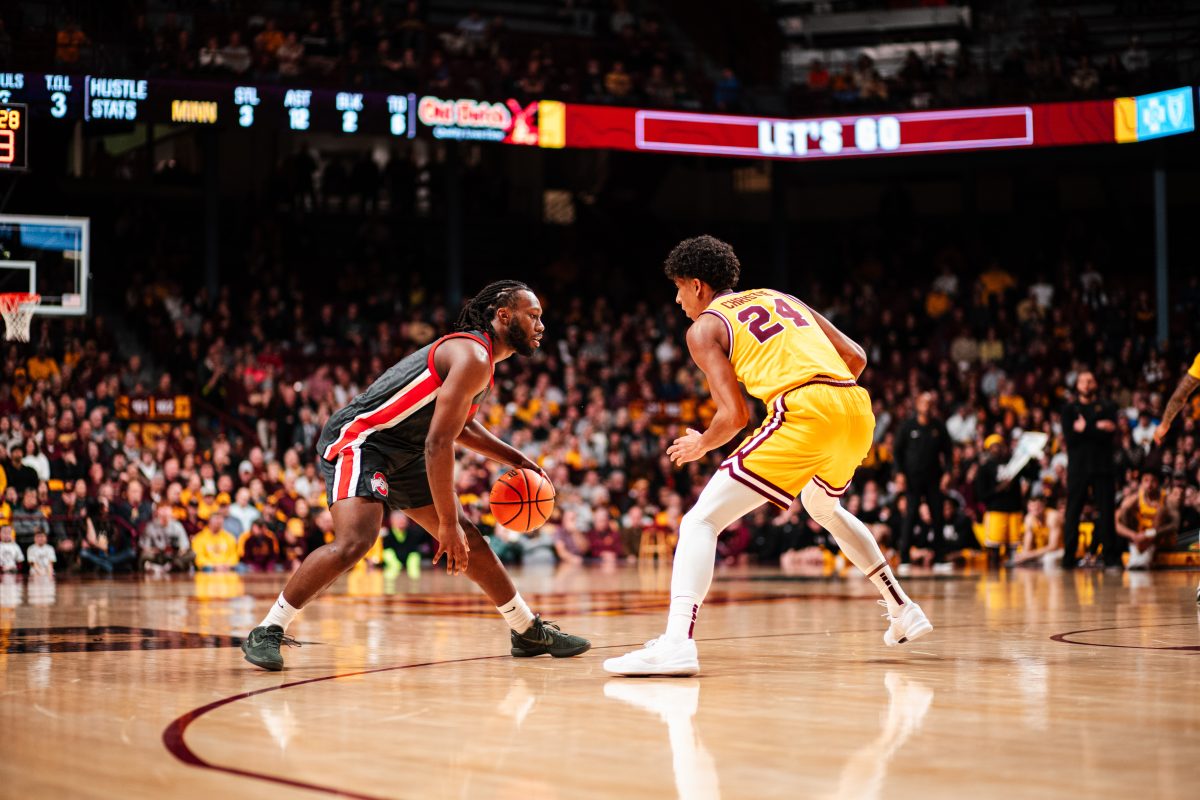For the first time since sexual assault allegations led to the suspension of Gophers football players, the firing of their coach and the hiring of a new one, University of Minnesota Athletics Director Mark Coyle sat down with the Minnesota Daily Monday.
Coyle discussed the recent controversy surrounding the football team and the firing of Tracy Claeys .
What has P.J. Fleck done in the two weeks since he was hired that has impressed you?
Nothing. I knew he would have great work ethic … He and his staff have been recruiting non-stop. He put together a staff very quickly. When we had a chance to sit down and interview him, those were all things he talked about. He was very organized, very plain and thought out, and he’s done everything we’ve asked him to do.
How do you feel about the public’s reception to him?
… I mentioned at the press conference when we hired him, he has a lot of authentic energy and passion and I think people can resonate with that. I think people, they see that when he’s being interviewed, they see him when he’s talking, but then when you have a chance to meet him in person, he’s been so great … he’s been to Gopher basketball games; he’s been to other events here on campus. When he goes and people have a chance to interact with him, I think they see that, how genuine he is, how authentic it is …
Part of the reason he came here, as you said, was to help change the culture. It’s only been two weeks, but has anything been done yet to change that culture?
I think his actions. I think, again, people see his excitement, his passion to be here … I know he’s had a chance to be around with the team, spend some time with the team. When he came here, the first thing we did was meet with the team so we had a chance to interact with some of those students. Again, we’re all defined by our actions. I think people have been very excited with what they’ve seen and it’s been a positive impact for everybody.
And you had a chance to meet with the team when Fleck met with them?
I introduced coach Fleck to the team and then coach Fleck met with them. I thought it was very important for coach Fleck to have his time with the team as a new coach so I just introduced the coach and I dismissed myself from the room.
There was a big divide between the administration and the players during the boycott. Have there been any talks with them since to fix the divide?
As I talked about before, everybody was frustrated. Players were frustrated, I was frustrated … due to student privacy laws, there’s a lot of things we can’t talk about and that created a lot of frustration and misunderstanding. I had a chance to talk to some of the students on that team. I’m very thankful for how they’ve responded …
What was your initial reaction to the boycott?
… Our goal is to provide a great experience for all of our students and make sure they have a great experience here. My thought was to make sure we do everything we can to help everybody understand what’s going on, what we can and cannot talk about …
What happened in between the boycott getting announced and ended?
It was communication … everything happened so quickly … [We] just had a chance to communicate with each other, learn with each other and where we’re coming from and trying to work together, and I was very thankful that our student-athletes made the decision to come back and play in the bowl game and what a great experience it was for our student-athletes, a great win over a good Washington State football team, so it was exciting.
When Claeys was fired and Fleck was hired, you said he was here to change the culture. What about Fleck makes him right to change it?
… We wanted to shake the tree. We wanted to create a new excitement, a new energy. I think, again, when you meet coach Fleck […] he has a lot of excitement and passion. I think that’s very authentic. I think people respond to that, so I think coach Fleck can come in here, he can work with our student-athletes who have been welcoming him and working with him and we’ll move our program forward.
There were a lot of reasons given out for Claeys firing. Was there any one big reason?
No. I had a chance to evaluate the program six months, seven months since I’ve gotten here … it was a long-term decision for our program to move forward in a different direction.
What was the feedback from the public on the Claeys firing?
I think the great thing about Minnesota is we have a very passionate fan base … when I talk to people, when I interact with people, you hear all different types of thoughts and comments. There’s no question. People are excited about coach Fleck and the future of our program has me excited.
Is there anything you could’ve done differently to avoid the boycott situation?
No doubt … you have to communicate, make sure you have constant communication, and I think with me being new, you have to earn trust. You have to develop relationships with people and I can tell you the lesson I take away from it is that you can always learn something. You can always communicate more, be more communicative with your staff, your students, your coaches and those are things we’re going to take away from it.
When players ended the boycott, they said they would do things to bring exposure to issues of sexual harassment. Have you seen anything from them yet?
I’ve had a chance to talk to students on that team. Again, we’ve talked about how we do want to make change. We want to make positive change, and I look forward to working with them and working with our campus on that. This is not only an athletic department, it’s a campus …
What would that positive change entail?
I think those are all things that we need to define together. I think it’s important not for this person to say what it should be or that person to say. I think collectively we need to decide together and with campus, what can we all do to make this a great learning experience for all of us moving forward.
Back in 2015, it was revealed that a University Title IX administrator raised concerns about the football team’s culture. Are there any plans to address those concerns?
I wasn’t here in 2015. I apologize. I’m not sure …
Concerns have been brought up again over how the football team defended the suspended players. Are there any plans to address that?
… We have a phenomenal student-athlete development group on campus within our athletics department … called our life skills program where we work with our students, and I think we need to take a look at. When we have people come in and when we have people speak to all of our student-athletes … is that message getting across? Do our students understand what this means, what that means? I think you always have the time to look back and reflect on how you do things and are we connecting with students. Do we have the right content? The right messaging? Those are things we’ll evaluate.
Any plans to increase that teaching?
Well, sometimes more volume is not the answer. The answer might be reviewing what we do now, and is it effective? Are we reaching those people? That’s what we first have to understand is hey, some of the things we’re doing, what is working, what is not working? How can we improve it? That may mean more. I don’t know. It may mean less. I don’t know. I do know we want to be effective and we want to be very intentionally consistent with our messaging with our 700 student-athletes.
Editor’s Note: This Q&A has been edited for clarity and length.






















